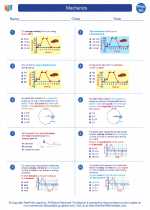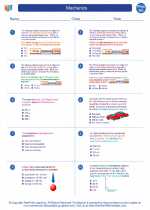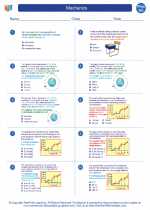Astronomy
Astronomy is the scientific study of celestial objects such as stars, planets, comets, and galaxies, as well as the phenomena that originate outside the Earth's atmosphere, including cosmic background radiation and cosmic rays. It is one of the oldest sciences, and has been practiced in various forms for thousands of years.
Key Concepts
- Celestial Objects: These are objects that exist in space, such as stars, planets, moons, asteroids, and comets.
- Galaxies: These are huge systems of stars, gas, and dust, all held together by gravity.
- Constellations: These are patterns of stars that form recognizable shapes or figures in the sky.
- Planetary Motion: The study of the motion of planets in our solar system, including their orbits around the Sun.
- Stellar Evolution: The life cycle of stars, from their formation to their eventual death.
- Cosmology: The study of the origin, evolution, and eventual fate of the universe.
Important Astronomers
Throughout history, many astronomers have made significant contributions to our understanding of the universe. Some key figures include:
- Claudius Ptolemy: Ancient Greek astronomer who proposed a geocentric model of the universe.
- Nicolaus Copernicus: Renaissance astronomer who developed the heliocentric model, placing the Sun at the center of the solar system.
- Galileo Galilei: Italian astronomer known for his telescopic observations of celestial objects.
- Johannes Kepler: German astronomer who formulated the laws of planetary motion.
- Isaac Newton: English physicist and mathematician who developed the laws of motion and universal gravitation.
- Edwin Hubble: American astronomer who provided evidence for the expansion of the universe.
Study Tips
To excel in astronomy, consider the following study tips:
- Understand the Basics: Familiarize yourself with the concepts of celestial objects, galaxies, and planetary motion.
- Use Visual Aids: Utilize diagrams, images, and videos to visualize astronomical phenomena and objects.
- Stay Updated: Keep up with the latest discoveries and advancements in astronomy by following reputable sources.
- Practice Problem-Solving: Work on solving problems related to astronomical calculations and concepts.
- Engage in Observational Astronomy: Spend time observing the night sky with a telescope or binoculars to deepen your understanding.
[Astronomy] Related Worksheets and Study Guides:
.◂Physics Worksheets and Study Guides High School. Mechanics
The resources above cover the following skills:
Core Ideas for Knowing Science
Physical Science
Changing the movement of an object requires a net force to be acting on it.



